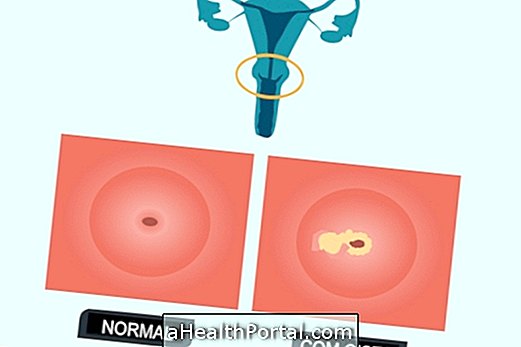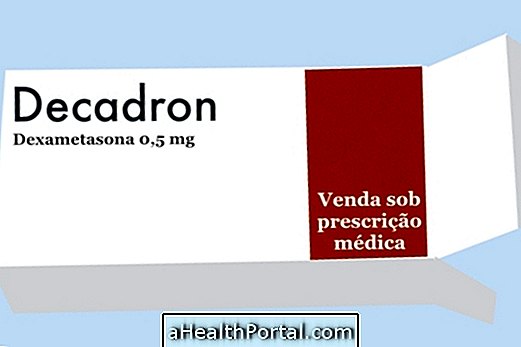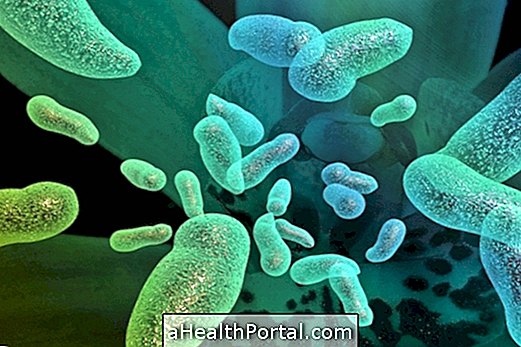Eating disorders are characterized by changes in eating, usually due to excessive preoccupation with body weight and appearance. They can have features like spending several hours without eating, frequent use of laxatives, and avoid going out to eat in public places.
Eating disorders can have serious consequences, such as kidney, heart and even death problems. They usually appear more often in women, especially during adolescence, and are often linked to problems such as anxiety, depression, and drug use.
Following are the top 7 eating disorders.
1. Anorexia

Anorexia or anorexia nervosa is a disorder in which the person sees his body always being overweight, even if he is clearly underweight or malnourished. There is an intense fear of gaining weight and an obsession to lose weight, its main feature being the rejection of any type of food.
Main symptoms: look in the mirror and feel fat, not eat to not get fat, count the calories of the meal before eating, avoid eating in public, do too much exercise to lose weight and take medicine to lose weight. I'm testing for anoxia.
Treatment: The basis of anorexia treatment is psychotherapy, which will help improve behavior in relation to food and the body itself, and may require the use of anti-anxiety and depression medications. In addition, there should be nutritional monitoring to guide healthy eating and the use of dietary supplements to meet the nutrient deficiency of the body.
2. Bulimia

Bulimia is characterized by frequent episodes of binge eating, in which there is a consumption of large amounts of food, followed by compensatory behaviors such as forcing vomiting, using laxatives or diuretics, running out of food and exercising in excess to try to control weight.
Main symptoms: Chronic throat inflammation, gastric reflux, cavities and sensitivity in the teeth, practice a lot of physical exercises, eat large amounts hidden, dehydration and gastrointestinal problems.
Treatment: It is also done with psychological counseling to revert behavior in relation to food and nutritional monitoring, to have guidelines on dietary adequacy and nutrient balance. In addition, it may be necessary to use medications for anxiety and to control vomiting. See more about bulimia treatment.
3. Food Compulsion

The main characteristic of binge eating is frequent episodes of overeating, even when you are not hungry. There is a loss of control over what to eat, but there are no compensatory behaviors such as vomiting or use of laxatives.
Main symptoms: overeating until you are not hungry, difficulty stopping eating, eating too fast, consume strange foods like raw rice or cold beans, being overweight.
Treatment: psychological counseling should be done to help identify the causes of binge eating episodes and regain control over food. Nutritional monitoring is also often required to control weight and probable health problems arising from the disorder, such as high cholesterol and liver fat.
4. Orthorexia

Ortorexia is overreacting with what you eat, leading to an obsession to always eat right, with healthy foods and extreme calorie control and quality.
Main symptoms: study a lot about healthy eating, avoid processed foods or high in fats or sugar, avoid eating outside the home, always eat organic products, plan strictly meals.
Treatment: includes medical and psychological follow-up in order to improve the relationship with the food and show the patient that he can be healthy even without restricting both his food. See more details on orthorexia.
5. Vigorexia

Vigorexia, also known as muscular dysmorphic disorder or Adonis Syndrome, is characterized by an obsession to have perfect body, leading to exaggerated practice of physical exercises.
Main symptoms: extreme tiredness, irritability, excessive use of dietary supplements, practice of physical exercises until exhaustion, excessive preoccupation with eating, insomnia and muscle pain.
Treatment: it is done with psychotherapy, with the purpose of making the individual accept their body and increase their self-esteem, besides nutritional monitoring for a proper orientation regarding the use of supplements and for the prescription of an adequate diet for the training.
6. Gourmet Syndrome

Gourmet Syndrome is a rare disorder characterized by excessive concern about food preparation, from the purchase of the ingredients to the way it will be served on the plate.
Main symptoms: frequent consumption of exotic or special dishes, excessive concern about the quality of the ingredients bought, spending much time in the kitchen, be very careful when preparing food, always serve well-decorated dishes.
Treatment: It is mainly done with psychotherapy, but when the syndrome leads to being overweight, it is also necessary to follow up with a nutritionist.
7. Night Eating Disorder

Night Eating Disorder, also known as Night Eating Syndrome, is characterized by lack of appetite in the morning, offset by a large intake of food at night which is accompanied by insomnia.
Main symptoms: wake up at night to eat, do not feel hungry or eat little during the day, do not always remember that ate too much at night, being overweight.
Treatment: is done with psychotherapy and use of medicines to regulate sleep and, when necessary, antidepressants. See tips on controlling the urge to eat at dawn.
It is important to remember that during the treatment of any eating disorder it is essential to have the support of the family so that the patient understands their condition and collaborates to overcome the problem. If possible, everyone at home should strive to have healthy lifestyle habits, such as balanced eating and regular physical activity.
























